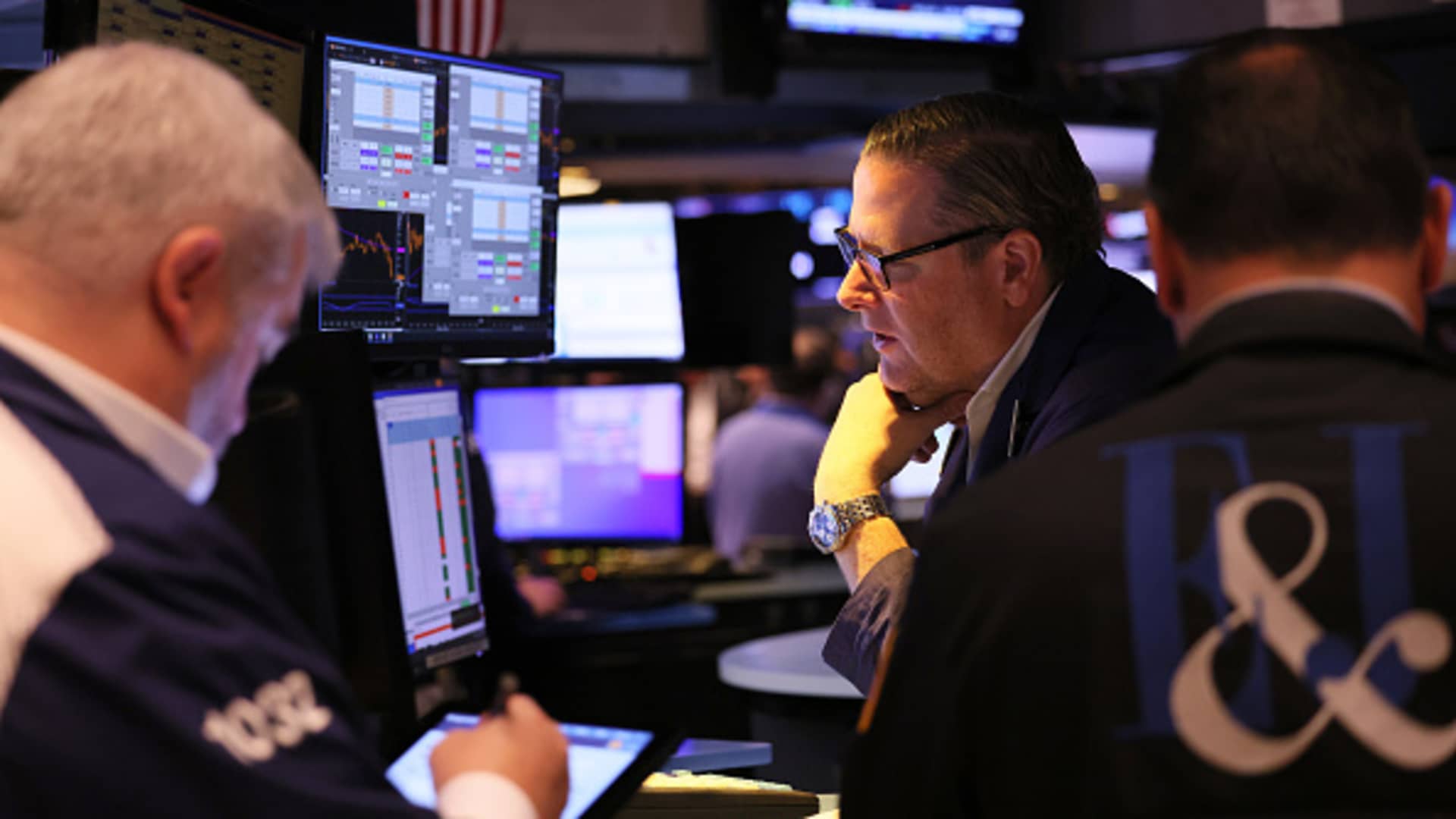
Top Wall Street executives are sounding the recession alarm. Earlier this month, Amazon founder Jeff Bezos became the latest corporate titan to warn of a recession, noting in a Twitter post that it’s time to “batten down the hatches.” His warning echoed that of Goldman Sachs CEO David Solomon, who said there’s a “good chance” the U.S. is headed for a recession. JPMorgan Chase CEO Jamie Dimon also predicted the U.S. is likely to tip into a recession in six to nine months. The risks of a recession have risen sharply this year, as stubbornly high consumer prices forced central banks around the world to rapidly hike interest rates to rein in inflation, roiling markets and putting investors on edge. Fund manager Brian Arcese also believes the U.S. is headed for a recession — albeit one that is milder than the devastating global financial crisis of 2008. Investors who want to be “recession proof” should have a balanced portfolio, he added. “A balanced portfolio is one that is practical and designed to be all-weather,” said the portfolio manager at Foord Asset Management, who co-manages the Foord International Fund and the Foord Global Equity Fund. “You need to have stocks that will work in any type of economic environment,” he told CNBC Pro Talks last week. Market watchers typically describe a balanced portfolio as having a 60% allocation to stocks and a 40% allocation to bonds, but Arcese said he does not agree with this view. He likens his strategy to a barbell approach of growth-oriented names and value stocks, as well as stocks that fall in between the growth and value spectrum. “The overarching theme among all the names, if you really want to recession proof your portfolio, is to make sure that all the names that you own, whether they are growth, value, dividend paying or whatever bucket the market wants to put them in, that they all have good management teams that have a history of allocating capital well and a history of managing through an economic cycle. With that, you can gain a lot of comfort,” he said. In the latest installment of CNBC Pro Talks last week, he named three stocks he thinks investors should own to protect their portfolios in a recession. Recession-proof stocks One stock he likes is Minnesota-based health insurer UnitedHealth , which he described as a “market leader” in managed care solutions. “It’s a company that grows earnings in a in a defensive way through cycles — low double digit to mid-teens rate. Even a company like that is impacted by a recession but certainly far less on a relative basis than deep cyclicals for example,” he said. Deep cyclicals are companies that are highly sensitive to economic cycles — they outperform when markets rise and underperform when markets dip. Earlier this month, the company reported third quarter earnings and revenue that beat consensus estimates. On top of that, it raised its full-year outlook. Shares in the company are up nearly 8% this year, handily beating the broader market. Arcese sees Pennsylvania-based industrial chemicals firm Air Products as an “incredibly defensive” company that provides a “real direct hedge” against inflation. It also has a track record of having grown dividends for 40 consecutive years, he added. “A company like that, it will go down in absolute terms as equity markets decline but it’s an incredibly defensive business and something that we are happy to own through this period, and it offers that real direct hedge against inflation if it does carry on longer than investors in general expect,” Arcese said. Rounding off his list is copper miner Freeport McMoRan . The stock has lost nearly 24% of its value this year, largely because of the sharp decline in copper prices, which was prompted by investors’ fears of a recession, according to Arcese. But copper is key to the global energy transition, and Freeport McMoRan is well positioned to benefit thanks to its ability to mine the commodity at a low cost. “If you believe in energy transition, in green energy, the world doesn’t have enough copper to get us there. And so that’s a name where you’re being given an attractive entry point. And if inflation continues, then it also offers you that real time inflation hedge as well,” he said. The company delivered a beat on third quarter earnings, as it reported earnings per share of 26 cents on revenue of $5.00 billion, higher than analysts’ expectations of 24 cents per share in earnings and $4.88 billion of revenue, according to StreetAccount. The Foord International Fund has continued to “defend investor capital this year,” according to the fund’s latest factsheet . The fund is down 5.8% as at end-September — beating the global stock market, which declined 25.2%, according to the fund’s commentary. The Foord Global Equity fund has also done better than the market this year. The fund has lost 23.3% of its value as at end-September, against a decline of 25.6% on the MSCI World, data from the fund’s latest factsheet showed.
